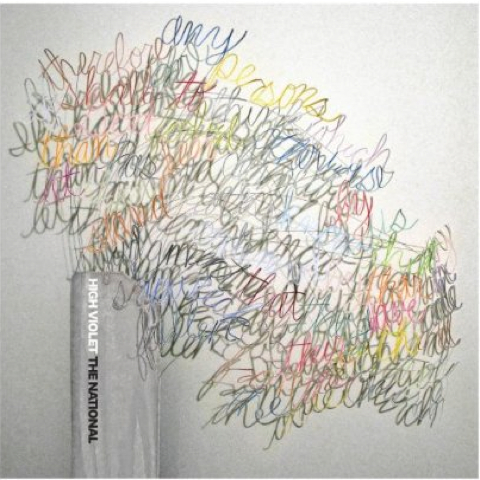Excluding the band’s first two releases – when, struggling to find a voice of their own, they swayed from one tastefully done pastiche to another – all of the National’s records largely concern the same thing: the white-collar man’s burden. 2005’s Alligator, their first major work (which remains their finest), was a series of stories told from the perspective of young, middle class men. Presumably recently out of college, these characters had moved to the Big Apple to find romance and meaning only to discover that they were little more than yet another sweater-and-headphone-wearing shmoe, glancing sheepishly at their fellow insignificant passengers on the subway. The young men of Alligator get drunk on wine and imagine themselves as the strutting Titans they always expected to be, but, in their moments of deflating honesty, they admit that their dreams at night aren’t of bohemian splendor, but, rather, that their middle-management bosses might one day pull them aside to say, “Son, I’ve been hearing good things.”
Alligator‘s follow-up, 2007’s Boxer, is similar thematically, but now the dreams have drifted farther into the past. The young men are not quite so young anymore. And while they’ve accepted – with bitterness and embarrassment – their mediocrity, their youthful fantasies of self-assured freedom haven’t been outgrown so much as replaced. Instead of themselves, they now turn to their lovers for purpose and validation. Songs such as “Ada,” or the gorgeous “Start A War,” indicate that the results aren’t much different. They still drink – a lot – and they still wander about New York City. But instead of having to admit only to themselves that things haven’t turned out quite as they’d hoped, there’s now someone else, maybe in bed beside them, who knows the awful, average truth.
Both of these records have come to be adored by more than a few demographically similar men (and women), and have helped the National grow into one of the “it” bands of contemporary popular indie rock. They’ve earned the group the accolades of figures of no less esteem than Bruce Springsteen and R.E.M. (each of whom one would rank up-high on a list of the group’s influences); and both records have placed high on many decade-end lists. Of course, the band’s earned this audience, primarily, through its music, which is a consistently pleasant mix of many touch-stone indie and alternative rock heroes – Pixies, U2, the Cure, Leonard Cohen, New Order, etc. – and a superb, cathartic live show. But to a significant degree, the band’s continued success can be attributed to the fact that its audience hears itself echoed back in front-man Matt Berninger’s weary, drawling, and at times smirking baritone.
So should I be so surprised that High Violet, the group’s latest – and the record which could potentially launch them into the next echelon of acclaim – represents their most, self-serious, dour and morose release yet? After all, the National’s catalog is not exactly one known for its buoyancy. Still, I’ve had difficulty knowing what to make of a song like “Sorrow,” which features the lyric – delivered in utter earnestness – “Sorrow found me when I was young/ Sorrow waited, sorrow won”. Or “Afraid of Everyone,” which finds them channeling Joy Division/New Order perhaps more than ever before and ends with Berninger chanting, “You’re the voices swallowing my soul”. I’m accustomed to Berninger throwing a lyrical left-hook and opening up the darker recesses of his brain to extract a line that’s at once vile and humorous, but how to explain the album’s stand-out “Conversation 16” and its refrain: “I was afraid that I’d eat your brains/ ‘Cause I’m evil”? Are things for the kids – well, the former kids, I suppose – of the National’s New York City really so bad?
My worry isn’t so much that the National have begun to enter that phase (which, to be fair, seems inevitable for all but the very best artists) in which they write the songs they imagine their audience expects of them, rather than the songs which result from a more natural, authentic process. If that’s the case and the results continue to be records as listenable, lovingly crafted, and affecting as this one, then so be it. True, bands that have shifted into this gear rarely bless us with masterpieces – new releases inevitably become nothing more (or less) than signposts by which they and their audience note the passing of yet another year or two. And, true, once this phase is entered into, it’s only a matter of time before some angry young critic – maybe someone with plans to move to the Big City and make a mark of his or her own – unleashes the dreaded aspersion of “self-parody.” But the National are big boys; they can take it.
Although, listening again to “Lemonworld” – one of the record’s best songs – and the chorus: “You and your sister live in a lemonworld/ I want to sit in and die” – maybe they can’t.

